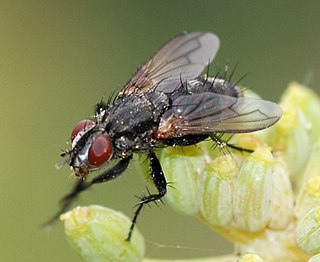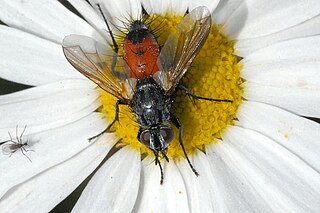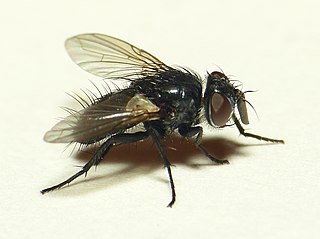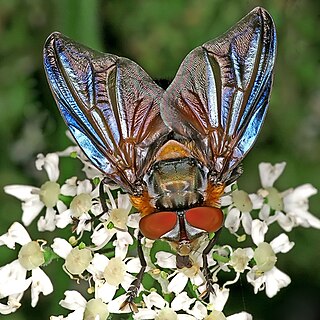
Rhinophorinae is a subfamily of flies (Diptera), commonly known as Woodlouse Flies, found in all zoogeographic regions except Oceania, but mainly in the Palaearctic and Afrotropical regions.
Chetina is a genus of bristle flies in the family Tachinidae.

Clausicella is a genus of flies in the family Tachinidae.

Dexiosoma is a genus of flies in the family Tachinidae.

Eriothrix is a genus of flies in the family Tachinidae.
Estheria is a genus of flies in the family Tachinidae.
Fischeria is a genus of flies in the family Tachinidae.
Stomina is a genus of flies in the family Tachinidae.

Zeuxia is a genus of flies in the family Tachinidae.

Loewia is a genus of flies in the family Tachinidae.
Lomachantha is a genus of parasitic flies in the family Tachinidae.

Exoristinae is a subfamily of flies in the family Tachinidae. Most species are parasitoids of caterpillars.

Blondeliini is a tribe of parasitic flies in the family Tachinidae. Larvae are parasitoids of other insects, mostly beetles and caterpillars. Although nearly cosmopolitan, its greatest diversity is in the New World and especially in South America.

Exoristini is a tribe of flies in the family Tachinidae.

Winthemiini is a tribe of flies in the family Tachinidae.

Phasiinae is a subfamily of flies in the family Tachinidae. Except for the small tribe Strongygastrini members of this subfamily attack only Heteroptera.

Tachininae is a subfamily of flies in the family Tachinidae.

Leskiini is a tribe of flies in the family Tachinidae.

Polideini is a tribe of bristle flies in the family Tachinidae. The tribe is unusual for its diversity of hosts, including spiders, scorpions, and centipedes in addition to the usual insect larvae.

Megaprosopini is a tribe of bristle flies in the family Tachinidae.













